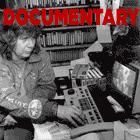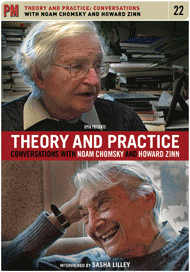Just added
The Convict Lease System by Frederick Douglass.
And just because, below is Angela Davis' Tribute to George Jackson:
August 23, 1971
An enemy bullet has once more brought grief and sadness to Black people and to all who oppose racism and injustice and who love and fight for freedom. On Saturday, August 21, a San Quentin guard's sniper bullet executed George Jackson and wiped out that last modicum of freedom with which he had perservered and resisted so fiercely for eleven years.
Though deprived so long of the freedom of movement enjoyed by his oppressors, even as he died George was far more free than they. Like he lived, he died resisting. A Field Marshal of the Black Panther Party, George belongs to a very special breed of fallen Black leaders, for his struggle was the most perilous.
He was recognized as a leader of the movement which sought to deepen the political consciousness of Black and Brown prisoners who constitute 30 to 40% of California's prison population. His impact on the community outside was and continues to be boundless. George's example of courage in the face of the spectre of summary execution; his insights honed in the torment of seven years of solitary confinement; his perserverance in the face of overwhelming odds will continue to be a source of inspiration to all our sisters and brothers inside prison walls and outside.
His book, Soledad Brother, a stirring chronicle of the development of the highest form of revolutionary fortitude and resistance, serves as a primer to captured brothers and sisters across the world. Equally important, this volume, perhaps more than any other, has given impetus and shaped the direction of the growing support movement outside the prisons. George, from behind seemingly impenetrable walls, has placed the issue of the prison struggle squarely on the agenda of the people's movement for revolutionary change. His book reveals the indivisible nature of the struggle on the outside of the prison system with the one inside. Whether in prison or not, Black and third world people are the victims and targets of a common system of oppression and exploitation. Only the methods used are different.
The prevailing conditions of race and class exploitation invariably result in the captivity of a disproportionate number of Black and third world people. Our brothers and sisters are usually locked up for crimes they did not commit, or for crimes against property - crimes for which white youths receive prosecutorial, judicial, and penal leniency. George himself was an 18 year old man-child when he was sentenced to serve from one to life for a robbery involving $70 - one to life - or eleven years' enslavement and sudden death. Through George's life and the lives of thousand of other brothers and sisters, the absolute necessity for extending the struggle of Black and third world people into the prison system itself becomes unmistakably clear.
The legacy left us by George and his dead brother, Jon means that we must strengthen the mass movement which alone is capable of freeing all of our brothers and sisters in prisons. We know that the road to freedom has always been stalked by death. George knew that the price of his intense revolutionary commitment was having to live each day fighting off potential death blows. He had repeatedly seen death used as a standard reprisal for blacks who "stepped out of line." In January of 1970, he had seen his brother prisoners, Nolan, Miller, and Edwards, warrantlessly and viciously murdered in the Soledad Prison yard. In Soledad Brother, George graphically told of the manner in which he had learned to thwart the many past attempts to murder him.
The dimensions of the task which lie ahead of us are clearer now, but the price of our new vision has been the death of two brilliant and brave revolutionaries, brothers in blood. Associate Warden Park promises us that the new wave of repression which has been unleashed within San Quentin will not halt with George's death. Rather, he has ushered in new terrorism by openly inviting guards to make a show of force and fully exhaust their vengeance on the prisoners themselves. Efforts to squelch revolutionary prison activity will not stop with one murder Park tells us, but will continue until San Quentin is purged of all revolutionaries and every revolutionary thought. The newspaper of George's party, the Black Panther Party, is hereafter forbidden within San Quentin's walls. "Old-fashion prison methods," namely raw brutality, without its cosmetic dressings, is officially the new regime. Brothers Ruchell Magee, Fleeta Drumgo, and John Clutchette are identified targets; others in the so-called Adjustment Center who have taken sides are equally in danger. Our responsibility extends to all these brothers upon whom war has been declared - the people must secure their safety, and ultimately their freedom. Prison authorities seek only to cover up their own murderous crimes by attempting to initiate new frame-ups. These efforts must be swiftly and forcefully
countered.
The Jackson family must be saluted. Their grief is deep. In little more than a year two of their sons, George and Jonathan, were felled by fascist bullets. I express my love to Georgia and Robert Jackson, Penny, Frances and Delora.
For me, George's death has meant the loss of a comrade and revolutionary leader, but also the loss of an irretrievable love. This love is so agonizingly personal as to be indescribable. I can only say that in continuing to love him, I will try my best to express that love in the way he would have wanted - by reaffirming my determination to fight for the cause George died defending. With his example before me, my tears and grief are rage at the system responsible for his murder. He wrote his epitaph when he said:
Hurl me into the next existence, the descent into hell won't turn me. I'll crawl back to dog his trail forever. They won't defeat my revenge, never, never. I'm part of a righteous people who anger slowly, but rage undammed. We'll gather at his door in such a number that the rumbling of our feet will make the earth tremble.






